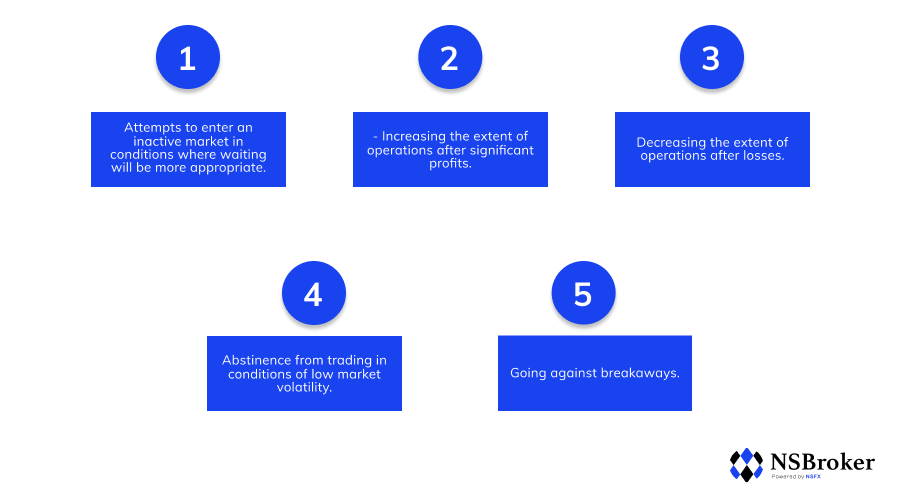What Is Emotional Intelligence and Why Do Traders Need It

According to the general opinion shared by most experts, emotions can be detrimental to a trader's success. At the same time, this thesis is often misinterpreted. It means that traders should not be guided by blind emotions and impulses when making decisions that require analysis and a strategic approach. At the same time, one should not completely get rid of their emotions in the trading process. Vice versa, they can be beneficial in many ways. Therefore, instead of completely blocking emotions, traders should develop and improve their emotional intelligence.
Emotional intelligence: the key to successful trading
Emotional intelligence (EI) is a broad concept used in various fields in which people interact with each other. In the most general context, it means the ability of a person to be aware of their emotions and keep them under control, as well as to understand the emotions of others. We use emotional intelligence every time we communicate with others or try to understand what they feel (or will feel) in certain situations.
From the very definition of this concept, it becomes clear that emotional intelligence can be important for a trader in at least two aspects. Conventionally, they can be defined as internal and external dimensions. Internally, a trader must have a high level of EI in order to understand their own emotions and keep them under control. Trading often puts people in a situation where emotions can prevail. For example, if you open a position based on certain market dynamics, which later turns out to be the opposite, you may panic and make an ill-considered decision. Emotional intelligence will help you realize the origin of a certain feeling, analyze its feasibility, and make a logical decision by abstracting from unnecessary impulses.
The external aspect of emotional intelligence includes understanding the emotions of others. This component is highly important for trading because markets do not behave in a certain way on their own. Any market trends are, in one way or another, a consequence of sentiments prevailing in a particular industry. In other words, markets, like no other field, are influenced by crowd psychology. In this context, the importance of emotional intelligence for the trader becomes apparent. For example, it is necessary to understand how people will react to a particular event to predict where they will lead the market by their actions.
Given all of the above, traders need EI both to understand themselves and to predict price dynamics in the future. Therefore, this skill is one of the key aspects of an outstanding trader that people need to develop to succeed in this field.
Emotional intelligence and perceptual distortions

Trading conducted by people with low levels of emotional intelligence is associated with numerous pitfalls that stand in the way of success. One of them is perceptual distortions.
They can take many different forms, but the most common distortions include the following:
- Attempts to enter an inactive market in conditions where waiting will be more appropriate.
- Increasing the extent of operations after significant profits.
- Decreasing the extent of operations after losses.
- Abstinence from trading in conditions of low market volatility.
- Going against breakaways.
Undoubtedly, these are not the only consequences of trading in conditions of low emotional intelligence. A whole set of other adverse situations can arise if a trader does not control his emotions and cannot predict the influence of other people on market dynamics. Therefore, the development of EI should be one of the priorities that the traders set for themselves.
How to enhance your emotional intelligence
Emotional intelligence is a characteristic that can be developed and improved. To do this, there are special exercises that a trader can resort to on a daily basis. Let's discuss one of them.
To improve your understanding of your emotions and their impact on trading transactions, write them down daily. This task must be performed before you enter the terminal and start working. Your notes should include the following items: the events that are happening to you now, the emotions you are feeling, and the possible causes of these emotions.
Performing this exercise can be challenging because human emotions are multifaceted and diverse, to the point where it is difficult not only to understand their causes but even to realize how you feel at the moment. However, if you repeat this exercise regularly, very soon, you will learn to better understand yourself and, thus, significantly develop your emotional intelligence.
Concluding thoughts
Excessive emotions and impulsivity do not go well with successful trading. It is important for a trader to keep them under control. The constant development of emotional intelligence is one of the most effective tools for achieving this goal. To demonstrate effective trading performance, you need to understand both yourself to avoid unsubstantiated, impulsive decisions. It is no less important to understand the emotions of other people, whose actions usually directly affect market fluctuations. Therefore, if you strive to succeed, you should pay no less attention to improving emotional intelligence than the development of your professional skills.










